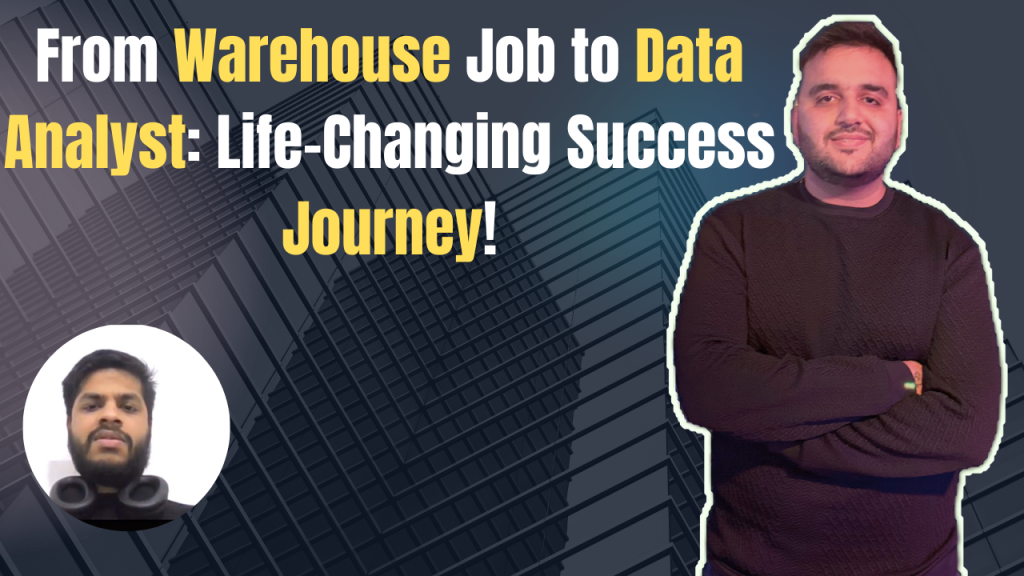
When Abhishek reached out to me in September 2024, he felt stuck. Despite having a solid junior data analyst background at Cognizant in India (which he left in February 2022 to pursue a master’s in Data Science in the UK), he was now working in a warehouse job. He wanted to return to analytics, but recruiters seemed to overlook him because he lacked recent, relevant experience.
Our first step was to highlight Abhishek’s existing strengths:
Key Concern: How to bridge the gap between his Cognizant experience and his current warehouse role?
I suggested adding a volunteer Data Analyst role to his CV. This move:
With his revamped CV, Abhishek landed an initial phone call from a leading UK-based water supply company. The conversation went well, validating our strategy. This initial screening call paved the way for the next stage: a video-recorded interview.
Abhishek was asked to record answers to four key questions:
If you’d like to see the exact answers Abhishek provided, you can buy the full Q&A pack here. Each answer was meticulously crafted to showcase his technical knowledge, problem-solving acumen, and communication skills—traits essential to a successful Data Analyst.
Impressed with his video interview responses, the company invited Abhishek for the final round, which was task-based. His challenge?
“Please could you take these hypothetical tickets that have been raised, create your own risk matrix, and score them in order of priority. The risk matrix is up to you and there is no correct order. We would like you to explain your risk matrix, why you have chosen the categories, and why you have scored the hypothetical ticket in that way. Present in any way you’d like.”
The hypothetical tickets included:
Abhishek had to create and present a risk matrix that clearly prioritized these tasks based on impact and likelihood, plus operational or reputational risk.
Want to see exactly how Abhishek tackled this exercise?
Click here to buy the presentation and his detailed task-based interview answers. You’ll gain insights into:
Please watch the below video where Abhishek has explained how the career coaching helped him to get his dream job.
By the time Abhishek finished the final presentation, the hiring team saw how he:
Shortly afterward, Abhishek received the offer to become a Data Analyst at the water supply company—just the role he had been longing for.